 Gaza War Role Is Political Lift for Ex-Premier
Gaza War Role Is Political Lift for Ex-PremierJERUSALEM — A few weeks ago, Defense Minister Ehud Barak was considered a dead man walking in Israeli politics. Members of his Labor Party were plotting to replace him after elections on Feb. 10, if not before. Under his leadership, the storied party of David Ben-Gurion and Golda Meir had sunk so low in the polls that there was serious talk it might disappear.
No one is talking like that now. Twelve days into a punishing war that he is leading against Hamas in Gaza, Labor’s poll numbers are spiking. Mr. Barak is everywhere, in sunglasses and leather jacket, striding among his military commanders, talking strategy, calculating the next move.
“The respect I get when I go into schools since the war is amazing, and it is all about Barak,” remarked Daniel Ben-Simon, a Labor Party candidate for Parliament. “Israel’s MacArthur is back.”
There is, however, much irony — and uncertainty — in this political upheaval. Although Mr. Barak has gained from the war, he was opposed to it for far longer than any of the other top leaders and has been the most eager of them for a cease-fire since it began. Many abroad recall Mr. Barak as the prime minister who in 2000 went further than any Israeli leader in peace offers to the Palestinians, only to see the deal fail and explode in a violent Palestinian uprising that drove him from power.
If the current war goes on for long and kills many young Israeli men on the battlefield — so far casualties have been few and his shock-and-awe approach of the first days has been widely admired in Israel — Mr. Barak’s gains may again disappear. But his caution has gained him renewed support from the left.
On Wednesday, at a meeting of the country’s security cabinet, he helped persuade his fellow ministers to hold off on expanding the ground war to give diplomats a chance to stop Hamas from rearming through its smuggling routes under the Egyptian Sinai. The focus of the discussions, involving Egypt, France, Britain and the United States, is on using an international force of experts and troops at the southern Gaza border.
“Barak is very cautious,” noted Isaac Herzog, Israel’s minister of social welfare and a fellow Labor Party member who was at the meeting. “He is a cool-headed manager of this campaign but wants to exhaust diplomatic avenues.”
Voters seem aware of the risk to their soldiers of deepening the Gaza invasion, so the relative pause should not be politically problematic. But the truth is that the public wanted this war more than Mr. Barak did. With elections coming, he felt it would be difficult to hold off any longer, especially when Hamas increased its rocket fire to some 60 rockets a day, several who know him believe.
Furious and frightened after thousands of projectiles had rained down on the south over several years, Israelis yearned for a traditional Zionist warrior to rally around and send a harsh message to Hamas. For months, Mr. Barak, the natural candidate for that warrior role, declined.
At 66, Mr. Barak is the country’s most decorated soldier, famous for having foiled an airplane hijacking years ago while disguised in a mechanic’s uniform and for leading a revenge killing operation against Palestinian guerrillas in Lebanon while dressed as a woman. A skilled pianist famed for a steel-trap mind, he has also been the military chief of staff.
But he never took Hamas as seriously as many others, considering it a relatively small strategic challenge whose rockets and arms buildup could be tolerated for a while to allow bigger problems to be handled.
“His eyes are focused on Iran,” noted Gilead Sher, who was his chief of staff when he was prime minister a decade ago. “Hamas and Hezbollah largely worry him in relation to Iran.”
This, too, is an irony of Mr. Barak’s renewed popularity from the war, because his failure to grasp how average Israelis viewed the rockets is part of a larger political failure on his part. He lacks the kind of easy direct contact with the public that makes for a successful political leader.
In fact, only days before beginning the war, Mr. Barak was berated at an internal Labor Party meeting over his lack of response to the rockets.
“Members were asking aloud what had happened to him, whether he had lost it,” a party member who was present recalled. “One member, a minister, said, ‘I’m embarrassed to walk in the street and hear people talk about you as a big nothing. I get text messages from my cousins in the south asking what’s going on. Why aren’t we attacking?’ ”
Mr. Barak, the party member said, flew into a rage, saying he had seen more blood than anyone in the room, that he had witnessed things so horrible they would faint just hearing of them, that he would not be lectured to on the need to be tough.
At that time, Labor was polling about 8 seats in the 120-seat Parliament, with the opposition Likud, headed by Benjamin Netanyahu, at 30 and the centrist Kadima, led by Foreign Minister Tzipi Livni, in the mid-20s. Today polls show Labor around 16 to 18; some are fantasizing about squeezing past Kadima for second place.
There is a long history in Israel of warriors becoming peacemakers, and Mr. Barak seemed to fit that pattern a decade ago. But he was always something of a hybrid, and returned to politics after a long hiatus in 2007, when he was elected the leader of the Labor Party. Now it remains to be seen whether he can again turn his comfort in the military arena into a platform for political success.
One reason he might not do so is his political tin ear. After he left politics at the start of this decade he went into business and got rich, buying an apartment on the 31st floor of Tel Aviv’s exclusive Akirov Towers. In recent months he tried to sell it for $11 million. For a leader of Israel’s social democratic party that seeks to speak for the working man, this was clearly a misstep.In an interview with Ari Shavit, a writer for the newspaper Haaretz, about 10 days before the war began, Mr. Barak described the purchase as a mistake.
“I admit I did not take into account that an apartment like this would become a symbol,” he said. But he argued that the contest for national leadership should not be a popularity contest.
“When a plane has to be landed in a storm, you don’t ask if there is someone nice here,” he said. “Nor do you ask whether there is someone who looks like a pilot or talks like a pilot or once stood next to a pilot during a flight. You ask if there is a real pilot here, not a nice guy, not a back-slapper.”
That sales pitch was adopted by the party, with advertisements showing an unsmiling Mr. Barak and the words “not friendly, not trendy and not nice.” It is seen as a surprisingly successful approach.
Most analysts say that whether the election victor is Likud or Kadima, Mr. Barak could well remain in his post as defense minister, where the public is comfortable seeing him. Mr. Netanyahu has told others that if he becomes prime minister he will seek to bring Labor in by keeping Mr. Barak as defense minister.
At the same time, some on Israel’s left seem to be looking again at Mr. Barak as the man to vote for precisely because he has shown caution in going to war.
“Many see Barak as the old Israel, the one that won the ’67 war brilliantly and overwhelmingly after hesitating for a month,” Mr. Shavit of Haaretz said. “This is his pattern. Don’t rush in. Try to avoid it. But if you start the war, win the war. It is exactly the opposite of Olmert of ’06, which was to rush in and lose it. If the war doesn’t turn into a disaster, there is feeling of relief that we are back to being the old Israelis in the sense of thinking a bit before we act.”
“The respect I get when I go into schools since the war is amazing, and it is all about Barak,” remarked Daniel Ben-Simon, a Labor Party candidate for Parliament. “Israel’s MacArthur is back.”
There is, however, much irony — and uncertainty — in this political upheaval. Although Mr. Barak has gained from the war, he was opposed to it for far longer than any of the other top leaders and has been the most eager of them for a cease-fire since it began. Many abroad recall Mr. Barak as the prime minister who in 2000 went further than any Israeli leader in peace offers to the Palestinians, only to see the deal fail and explode in a violent Palestinian uprising that drove him from power.
If the current war goes on for long and kills many young Israeli men on the battlefield — so far casualties have been few and his shock-and-awe approach of the first days has been widely admired in Israel — Mr. Barak’s gains may again disappear. But his caution has gained him renewed support from the left.
On Wednesday, at a meeting of the country’s security cabinet, he helped persuade his fellow ministers to hold off on expanding the ground war to give diplomats a chance to stop Hamas from rearming through its smuggling routes under the Egyptian Sinai. The focus of the discussions, involving Egypt, France, Britain and the United States, is on using an international force of experts and troops at the southern Gaza border.
“Barak is very cautious,” noted Isaac Herzog, Israel’s minister of social welfare and a fellow Labor Party member who was at the meeting. “He is a cool-headed manager of this campaign but wants to exhaust diplomatic avenues.”
Voters seem aware of the risk to their soldiers of deepening the Gaza invasion, so the relative pause should not be politically problematic. But the truth is that the public wanted this war more than Mr. Barak did. With elections coming, he felt it would be difficult to hold off any longer, especially when Hamas increased its rocket fire to some 60 rockets a day, several who know him believe.
Furious and frightened after thousands of projectiles had rained down on the south over several years, Israelis yearned for a traditional Zionist warrior to rally around and send a harsh message to Hamas. For months, Mr. Barak, the natural candidate for that warrior role, declined.
At 66, Mr. Barak is the country’s most decorated soldier, famous for having foiled an airplane hijacking years ago while disguised in a mechanic’s uniform and for leading a revenge killing operation against Palestinian guerrillas in Lebanon while dressed as a woman. A skilled pianist famed for a steel-trap mind, he has also been the military chief of staff.
But he never took Hamas as seriously as many others, considering it a relatively small strategic challenge whose rockets and arms buildup could be tolerated for a while to allow bigger problems to be handled.
“His eyes are focused on Iran,” noted Gilead Sher, who was his chief of staff when he was prime minister a decade ago. “Hamas and Hezbollah largely worry him in relation to Iran.”
This, too, is an irony of Mr. Barak’s renewed popularity from the war, because his failure to grasp how average Israelis viewed the rockets is part of a larger political failure on his part. He lacks the kind of easy direct contact with the public that makes for a successful political leader.
In fact, only days before beginning the war, Mr. Barak was berated at an internal Labor Party meeting over his lack of response to the rockets.
“Members were asking aloud what had happened to him, whether he had lost it,” a party member who was present recalled. “One member, a minister, said, ‘I’m embarrassed to walk in the street and hear people talk about you as a big nothing. I get text messages from my cousins in the south asking what’s going on. Why aren’t we attacking?’ ”
Mr. Barak, the party member said, flew into a rage, saying he had seen more blood than anyone in the room, that he had witnessed things so horrible they would faint just hearing of them, that he would not be lectured to on the need to be tough.
At that time, Labor was polling about 8 seats in the 120-seat Parliament, with the opposition Likud, headed by Benjamin Netanyahu, at 30 and the centrist Kadima, led by Foreign Minister Tzipi Livni, in the mid-20s. Today polls show Labor around 16 to 18; some are fantasizing about squeezing past Kadima for second place.
There is a long history in Israel of warriors becoming peacemakers, and Mr. Barak seemed to fit that pattern a decade ago. But he was always something of a hybrid, and returned to politics after a long hiatus in 2007, when he was elected the leader of the Labor Party. Now it remains to be seen whether he can again turn his comfort in the military arena into a platform for political success.
One reason he might not do so is his political tin ear. After he left politics at the start of this decade he went into business and got rich, buying an apartment on the 31st floor of Tel Aviv’s exclusive Akirov Towers. In recent months he tried to sell it for $11 million. For a leader of Israel’s social democratic party that seeks to speak for the working man, this was clearly a misstep.In an interview with Ari Shavit, a writer for the newspaper Haaretz, about 10 days before the war began, Mr. Barak described the purchase as a mistake.
“I admit I did not take into account that an apartment like this would become a symbol,” he said. But he argued that the contest for national leadership should not be a popularity contest.
“When a plane has to be landed in a storm, you don’t ask if there is someone nice here,” he said. “Nor do you ask whether there is someone who looks like a pilot or talks like a pilot or once stood next to a pilot during a flight. You ask if there is a real pilot here, not a nice guy, not a back-slapper.”
That sales pitch was adopted by the party, with advertisements showing an unsmiling Mr. Barak and the words “not friendly, not trendy and not nice.” It is seen as a surprisingly successful approach.
Most analysts say that whether the election victor is Likud or Kadima, Mr. Barak could well remain in his post as defense minister, where the public is comfortable seeing him. Mr. Netanyahu has told others that if he becomes prime minister he will seek to bring Labor in by keeping Mr. Barak as defense minister.
At the same time, some on Israel’s left seem to be looking again at Mr. Barak as the man to vote for precisely because he has shown caution in going to war.
“Many see Barak as the old Israel, the one that won the ’67 war brilliantly and overwhelmingly after hesitating for a month,” Mr. Shavit of Haaretz said. “This is his pattern. Don’t rush in. Try to avoid it. But if you start the war, win the war. It is exactly the opposite of Olmert of ’06, which was to rush in and lose it. If the war doesn’t turn into a disaster, there is feeling of relief that we are back to being the old Israelis in the sense of thinking a bit before we act.”
Isabel Kershner contributed reporting
New York Timesc
January 7, 2009


























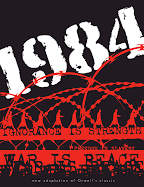





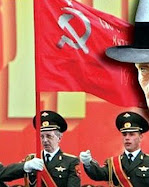

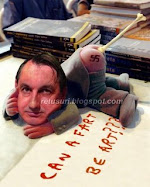








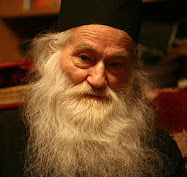
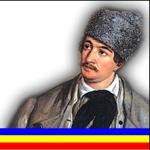
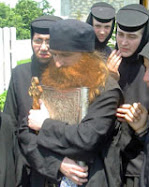






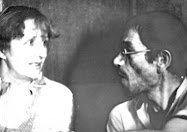






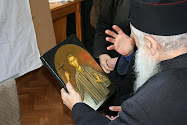
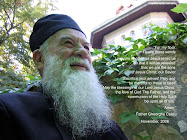
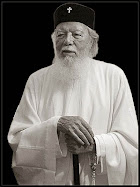

No comments:
Post a Comment